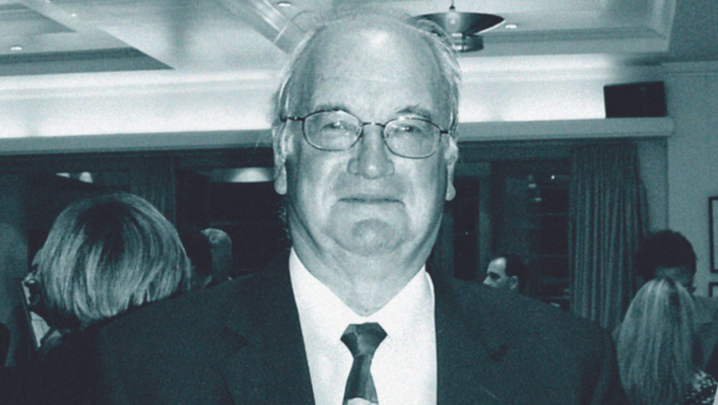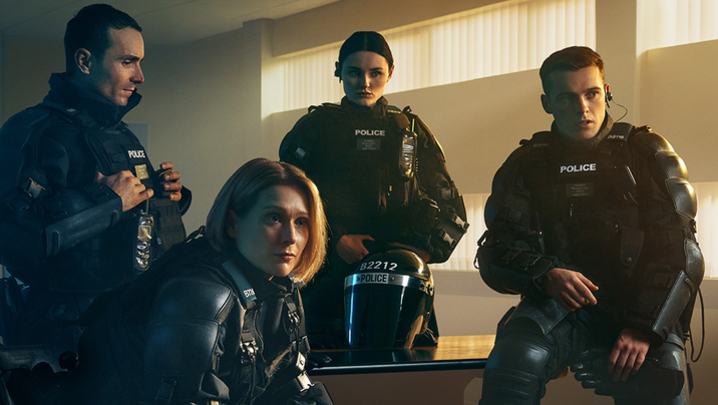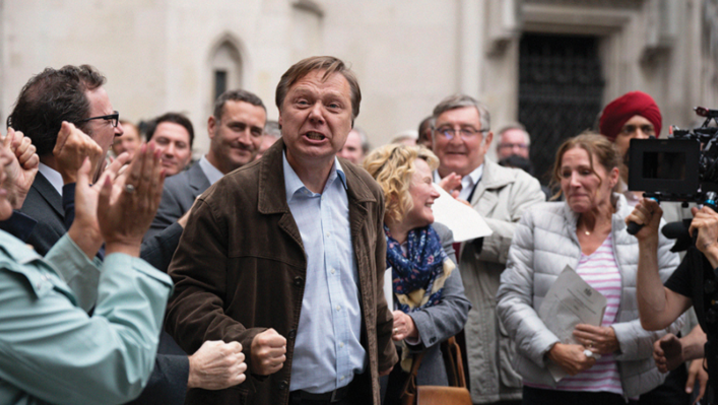Jimmy Mulville has faced down addiction, serious illness and the prospect of financial ruin. Andrew Billen listens to an extraordinary life story
The founder and Managing Director of one of Britain’s most successful, and certainly longest-lived, genuinely independent production companies sometimes tell his children that too much emphasis is put on excellence. SIt’s very important to fail,T their millionaire father says to them, Sand to recognise failureT.
Perhaps this is why I spend 75 minutes in Jimmy Mulville’s office at Hat Trick, its windows overlooking the murky Regent’s Canal, discussing the crises in his life.
The one-time enfant terrible of sketch comedy (who will, incredibly, be 60 in January) talks about his father’s suicide, his alcohol and drug addiction, and a cancer diagnosis 12 years ago that threatened to leave his third wife a widow for the second time. Not forgetting his love-hate relationship with the BBC.
We could, very profitably no doubt, have spent 75 minutes analysing the indestructibility of Hat Trick’s Have I Got News for You?, lauding the company’s classic comedies, from Father Ted to Outnumbered, or discussing its less well-known but also superb dramas, such as Bodies and God on Trial.
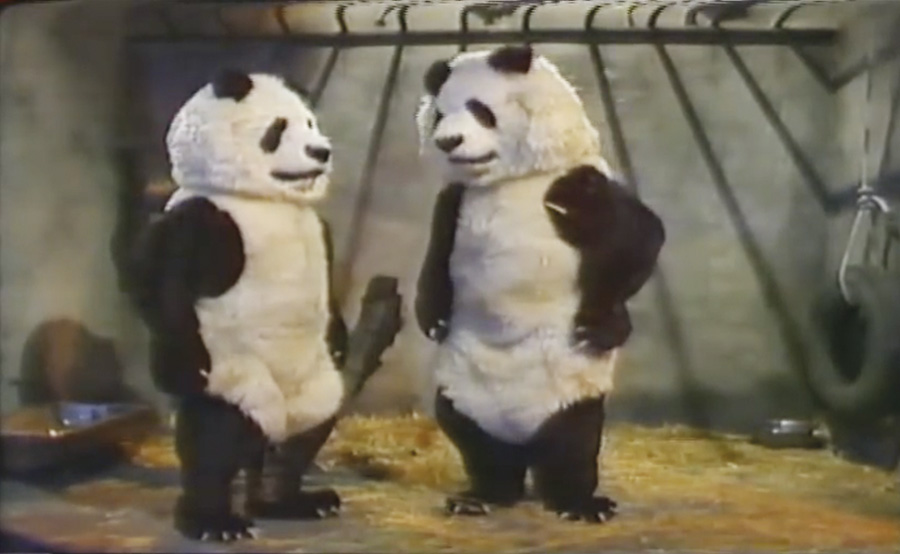 Who Dares Wins, Channel 4
Who Dares Wins, Channel 4
Mulville is also entertaining on some of his smaller crises, the stuff the self-help books tell us not to sweat.
One of them was the closure of the studios where Hat Trick’s trans-Atlantic sitcom, Episodes, was filmed and its enforced relocation to unlovely Elstree. SA real dump of a place,T he says. SI mean, something as simple as the catering…. We walked in with these two top-end American writers and Matt LeBlanc on our first day for breakfast, and it was like a scene from a prison movie.T
One can assume that the man from Barclays had never met a businessman like Mulville. Six years ago, the banker was a regular visitor, as Hat Trick faced a seemingly terminal debt crisis that coincided with several of its shows ending their runs.
Mulville says he fully thought that the company, which had been heavily invested in by the venture capitalist August Equity, would go under.
The man from the bank’s idea of helping was to go through its development slate, asking if a forthcoming programme was any good. One day Mulville replied that no, this one he mentioned was particularly terrible.
Indeed, his new strategy was only to Splan failures and fuck everything up intentionallyT.
 At a board meeting during this period, he found himself saying to his financial partners that they barely knew him. He was, he explained, used to vicissitudes. His mother, a waitress, was, like him, a recovering alcoholic. His father, a boiler operator at Tate & Lyle in Liverpool, Sliked a drinkT.
At a board meeting during this period, he found himself saying to his financial partners that they barely knew him. He was, he explained, used to vicissitudes. His mother, a waitress, was, like him, a recovering alcoholic. His father, a boiler operator at Tate & Lyle in Liverpool, Sliked a drinkT.
When education and intelligence propelled their only child to Cambridge, a SschismT opened between him and his parents.
Dennis Potter, in his 1993 MacTaggart Lecture, spoke of having been educated to a point where he felt he could never again go ShomeT. In the audience, Mulville wept.
In his last year at university, the news was withheld from him that his father was seriously ill. SHe killed himself when I was 23. He decided that he had had enough. He kind of euthanised himself in the most dramatic way. He hanged himself at his home. My mother found him.T
That year, 1978, he joined BBC Light Entertainment, first in radio and then producing and script editing BBC Two’s Alas Smith and Jones. Mulville did not enjoy Television Centre, which he suspected suffered from a version of sick building syndrome, but he is no more enamoured of New Broadcasting House and the SobscenityT of the Sgreat bear pitT of a newsroom that greets a visitor.
SNobody loves the BBC for its news. They trust it for its news, but they love it for its comedy and entertainment.T
His relationship with his first employer is clearly complex, if not Oedipal. He talks of its ScomplacencyT and SarroganceT in the early 1980s, of how no one could believe he might actually take an idea to Channel 4.
This is exactly what he did with the controversial sketch show, Who Dares Wins, in which he starred with Rory McGrath and Tony Robinson.
When, later, he set up Hat Trick with his girlfriend Denise O’Donoghue to make Whose Line is it Anyway?, his ally was the Sinertia and apathyT of the BBC entertainment division. It had not got round to translating the Radio 4 improv show – on which Mulville had appeared – to television itself.
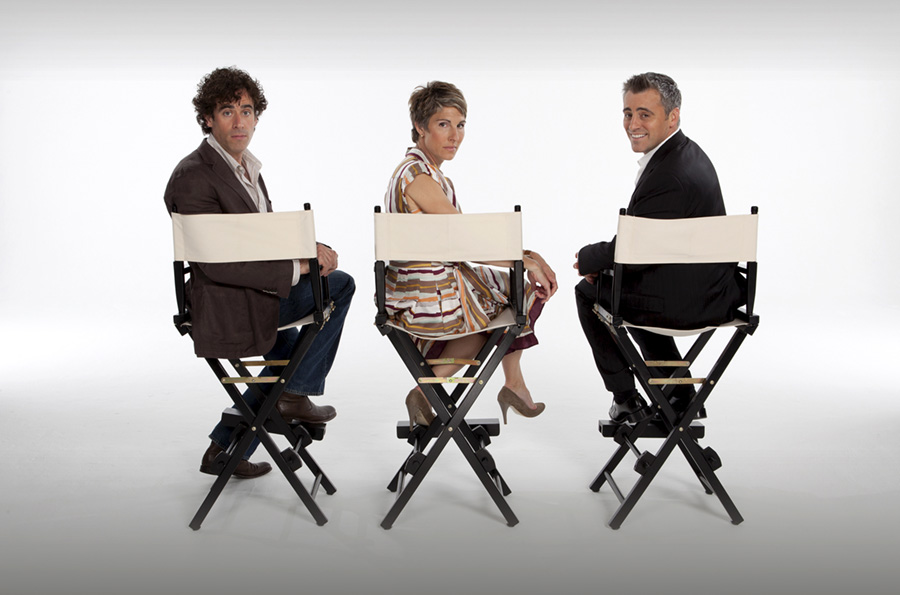 Episodes, BBC Two
Episodes, BBC Two
After the BBC bought Have I Got News for You?, he was SthreatenedT with executive producers to ensure it matched the quality of indigenous BBC comedy, Ssuch as Terry and JuneT.
Yet he also says he loves the BBC, and, in particular, its consistent support for the genre that Hat Trick is best known for, comedy.
Its Director-General, Tony Hall, is now driving through exactly the reforms Mulville has long advocated: an end to its in-house production guarantee, and the opportunity for the BBC to sell its shows to other broadcasters.
Mulville warns that, for the plan to work, it must change still further: SThe ITV Studios establishment is 1,200 people. The BBC’s is nearly 3,000. So Tony Hall says he’s going to liberate the in-house producer to produce for everybody. He’s going to liberate a lot of them into unemployment.T
He singles out Danny Cohen, the BBC’s Director of Television, as a BBC executive who could SeasilyT run an indie. SBut there are also total fucking idiots who couldn’t run a bath and are getting away with it because they’re in these BBC jobs. The BBC used to have more dead wood than Kew Gardens; I think that’s less the case now.T
He recalls a conversation with George Entwistle in which the short-lived DG said he was sure BBC producers were as hungry for commissions as Hat Trick’s.
Mulville replied by asking how many would lose their jobs if they failed to win them. SI said, ‘We’re all beasts of the field. We’re all animals out here, but I’m one side of the fence on the Serengeti, lean and mean, looking for the next kill. Meanwhile, over the other side of the fence, you’re being brought out of the lowing shed and fed three times a day. Different beasts.’T
Back in the late 1980s, Mulville was a beast you might not necessarily have wanted to know. His early marriage to a local girl had not survived his translation to Cambridge, but he was game to try again.
In a brief spell off the booze, he had wed O’Donoghue, but the marriage unravelled when he started indulging again, probably to escape goodness knows how many unresolved issues with his father.
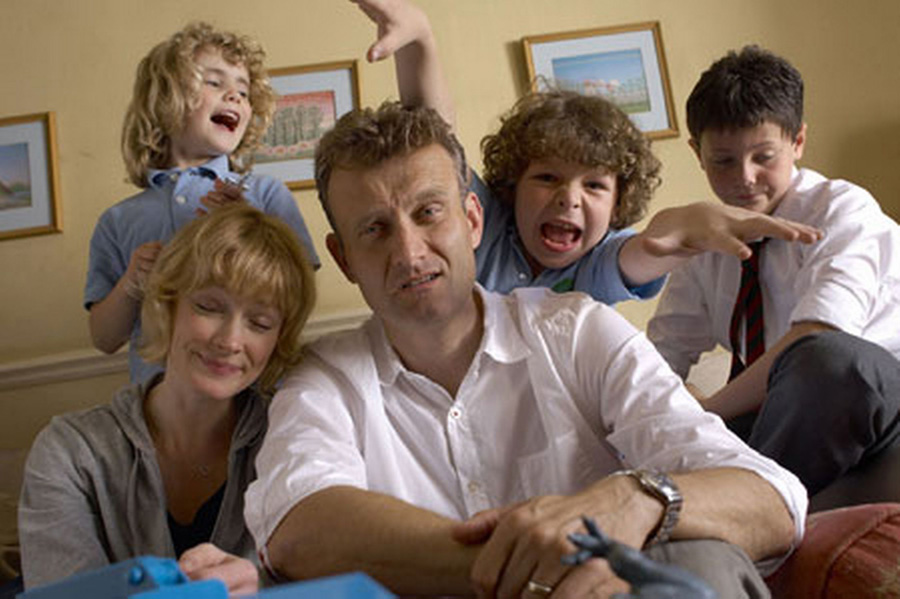
He spent a possibly record 13 weeks in rehab at Farm Place in Surrey. SI was very angry in there, very cynical, and in the end I broke. It doesn’t matter how smart you think you are, if you have that addictive gene or whatever it is, you end up feeling completely lost. And it’s essential that you feel lost. It’s essential that you have that moment where you think, ‘I’m fucked.’T
I ask if he felt that again in 2002, when a lump in his neck was diagnosed as a secondary cancer, SNo. I felt very frightened, very upset. I loved my life. I just wanted to extend it.T
Life was indeed good. Increasingly enjoying running a company with like-minded people (unlike-minded people tended to leave), he had quietly retired his acting career after the ITV sitcom That’s Love ended in 1992.
With O’Donoghue still on board and minutely focused on costs, Hat Trick became very profitable at a time when the mark-up on a sitcom was 35% more than it is today. Seven or eight of its programmes could air in a single week’s schedules.
By his early forties, he had Smade a few quidT. He had also met a young widow called Karen Page through a mutual friend who had Aids. Jimmy and Karen would turn up at his home to watch DVDs with him and go out together to pick up takeaways from a Japanese restaurant.
In the end, the dying man accused them both of coming round merely to see each other. They married in 1999 and started a family.
SI was 47 when I was diagnosed and I thought, ‘Oh fuck!’ You know, just when it was all going well. My father was diagnosed with his illness, which was transverse myelitis, which is like a polio viral thing from which there’s no recovery, when he was 48. I thought, ‘Shit. It’s some awful kind of cosmic joke.’ But, fortunately, I was in very good hands and they eradicated it and here I am.T
One can hardly imagine how that must have been for Karen, whose husband had died of cancer, aged 42.
SI said to her, ‘It’s a good job I survived because if I hadn’t survived, you’d never have found another husband. They’d have thought you’re some awful jinx. Someone starts dating you and they become tumescent in the wrong way.’T
The debt crisis of 2008-09 was another story of survival against some bad odds – stacked higher, perhaps, by O’Donoghue’s departure from the company in 2005. It was a defection that, he admits, threw him.
Salvation came when his partner David Young sold 12 Yard, in which Mulville had a 50% stake, to ITV for £35m. With some extra borrowing, Hat Trick had pulled out the proverbial rabbit.
The story Mulville enjoys telling most concerns his marriage, his three sons and his step daughter Paige, Karen’s daughter. When he first met her, she was three and, on some instinct, she had called him SdadT. For 16 years she did not call him that again.
SBehind my back she would call me dad, but not to my face. I said to Karen, ‘I can understand that, because when she called the first man in her life dad, he died. So why would you want to make that link again?’
SThen, when she was 19, we were in the kitchen just before Christmas and she said, ‘I’ve bought you a present. Do you want to have it now?’ I said, ‘All right.’ ‘It’ll make you cry.’ I said, ‘Will it really?’
SShe said, ‘Yes, it will.T It was a little key ring from Tiffany’s and it had that on it.T He shows it to me. It says:
SDadT. SAnd it did make me cry.T
As anyone who thought he might not see them should, he is looking forward to his sixties. SI am at that time now where I can say I love what I do for a job, but it’s not everything,T says Mulville. SIt really isn’t everything. And the thing is, that’s only dawned on me now, in my late fifties. Until the moment I do die, I know it’s going to be fine.T
Mulville’s progress
James Thomas Mulville, Managing Director of Hat Trick Productions since 1986 Married to Karen Page since 1999; three sons and one step daughter
Born: 5 January 1955, Liverpool
Parents: Father: James, boiler operator; died 1978. Mother: June, department-store waitress ‘and fantastic grandmother’
Education: Alsop Comprehensive; Jesus College, Cambridge; joined the Footlights, starring in The Puny Little Life Show by Roger McGough
1974 Married Julia Kelly
1978 Joined BBC Light Entertainment Department
1983 Wrote and performed in Channel 4’s Who Dares Wins
1984 Producer on Alas Smith & Jones
1986 Set up Hat Trick with Denise O’Donoghue and Rory McGrath
1987 Wrote and starred in Chelmsford 123
1987 Married Denise O’Donoghue
1988 Starred in ITV sitcom That’s Love
1988 Hat Trick production Whose Line Is It Anyway?
1990 First series of Hat Trick’s Have I Got News for You
1999 Married Karen Page
A hat trick of hits: Father Ted, Clive Anderson Talks Back, Drop the Dead Donkey
A more recent hat trick Episodes: Facejacker, The Revolution Will Be Televised
Hobbies: Everton Football Club, shooting




